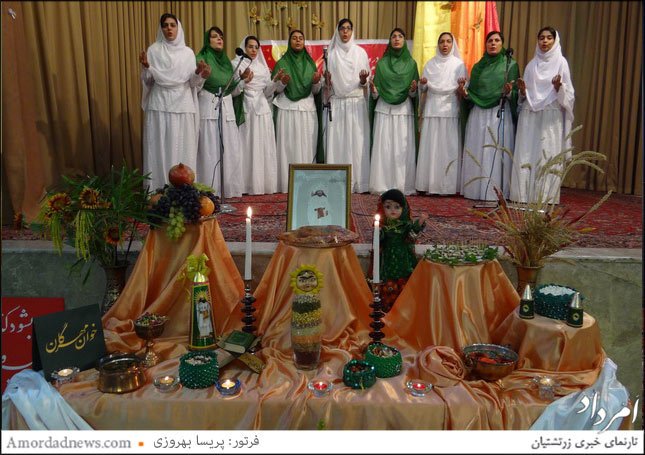Iranians observe Mehregan aiming to renew friendship
 “Delivering speeches by several Zoroastrian religious figures and officials on the importance of the feast and conveying its message to new generations are among core elements of the Mehregan celebration at Markar cultural complex,” the complex’s secretary of the festivity told the Tehran Times on Monday.
“Delivering speeches by several Zoroastrian religious figures and officials on the importance of the feast and conveying its message to new generations are among core elements of the Mehregan celebration at Markar cultural complex,” the complex’s secretary of the festivity told the Tehran Times on Monday.
“Timeline of the event also includes contests for Shahnameh reciting, storytelling and Zoroastrian dialect speakers,” Rashin Jahangiri added.
Widely referred to as the Persian Festival of Autumn, Mehregan is dedicated to the deity of Mithra which is venerated as the angel of friendship, love, and affection. The event is regarded as a traditional autumn harvest festival as well.
Attendees to the event usually wear colorful clothes. Amongst features of the event is also setting a relatively large spread in purple which is laden with various ingredients, dishes and elements each on behalf of a particular belief.
Fruits, vegetables, dried nuts, sweets, rosewater, grilled lamb meat, lotus seeds and silver coins and a scale are typically placed on the tablecloth, as the latter is a symbol for the autumnal equinox.
Mehregan falls on the 196th day of the Iranian calendar year that usually equals to October 2 in the Gregorian calendar.
Origins of the event
There are many accounts about the origins of Mehregan. Avestan texts divide the Iranian year into two equal parts or seasons; summer and the winter. The advent of the two seasons would be celebrated through Noruz and Mehregan.
During Achaemenid era (c. 550–330 BCE), Mehregan was celebrated in an extravagant style at Persepolis. It was both the time for harvest and time when the taxes were collected.
Visitors from different parts of the empire brought gifts for the king, which contributed to a lively festival.
The legend says Mehregan was a day of victory for Fereydoon and Kaveh, who overcame Zahak. They imprisoned him in Mount Damavand where he later died of his wounds. After the capture of Zahak, Fereydoon was nominated as the king and the people celebrate this occasion with great fervor. The story has been narrated in Shahnameh, a long epic poem by the illustrated Persian poet Ferdowsi (940-1020 CE).





